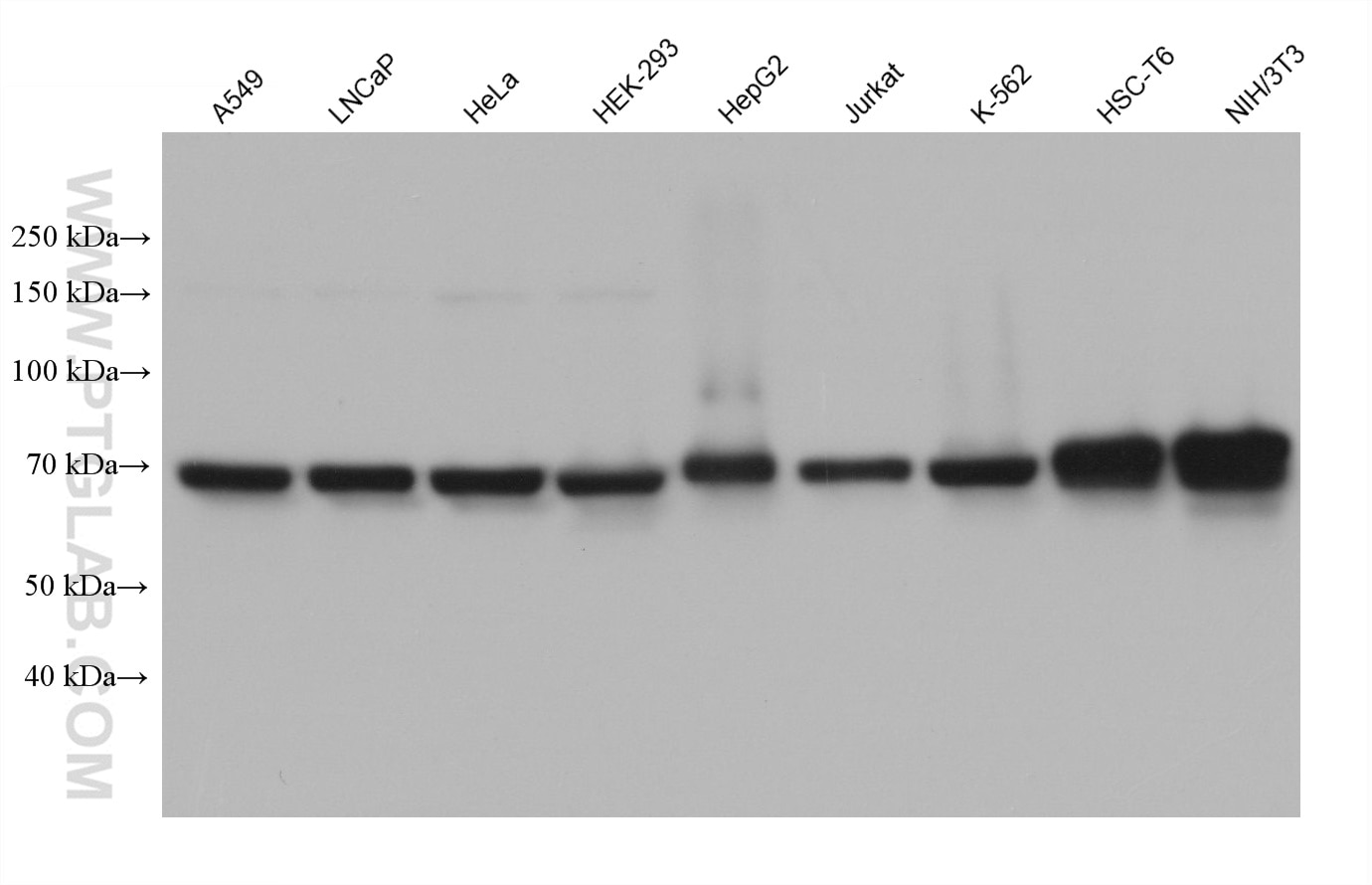Validation Data Gallery
Tested Applications
| Positive WB detected in | A549 cells, LNCaP cells, HeLa cells, HEK-293 cells, HepG2 cells, Jurkat cells, K-562 cells, HSC-T6 cells, NIH/3T3 cells |
Recommended dilution
| Application | Dilution |
|---|---|
| Western Blot (WB) | WB : 1:2000-1:10000 |
| It is recommended that this reagent should be titrated in each testing system to obtain optimal results. | |
| Sample-dependent, Check data in validation data gallery. | |
Product Information
68520-1-Ig targets CstF-64 in WB, ELISA applications and shows reactivity with Human, Mouse, Rat samples.
| Tested Reactivity | Human, Mouse, Rat |
| Host / Isotype | Mouse / IgG1 |
| Class | Monoclonal |
| Type | Antibody |
| Immunogen | CstF-64 fusion protein Ag33751 相同性解析による交差性が予測される生物種 |
| Full Name | cleavage stimulation factor, 3' pre-RNA, subunit 2, 64kDa |
| Calculated molecular weight | 61 kDa |
| Observed molecular weight | 64-70 kDa |
| GenBank accession number | BC017712 |
| Gene Symbol | CstF-64 |
| Gene ID (NCBI) | 1478 |
| RRID | AB_3085229 |
| Conjugate | Unconjugated |
| Form | Liquid |
| Purification Method | Protein G purification |
| UNIPROT ID | P33240 |
| Storage Buffer | PBS with 0.02% sodium azide and 50% glycerol |
| Storage Conditions | Store at -20°C. Stable for one year after shipment. Aliquoting is unnecessary for -20oC storage. |
Background Information
Cleavage stimulation factor 64 kDa subunit is a protein that in humans is encoded by the CSTF2 gene. This gene encodes a nuclear protein with an RRM (RNA recognition motif) domain. The protein is a member of the cleavage stimulation factor (CSTF) complex that is involved in the 3' end cleavage and polyadenylation of pre-mRNAs. Specifically, this protein binds GU-rich elements within the 3'-untranslated region of mRNAs.
Protocols
| Product Specific Protocols | |
|---|---|
| WB protocol for CstF-64 antibody 68520-1-Ig | Download protocol |
| Standard Protocols | |
|---|---|
| Click here to view our Standard Protocols |
